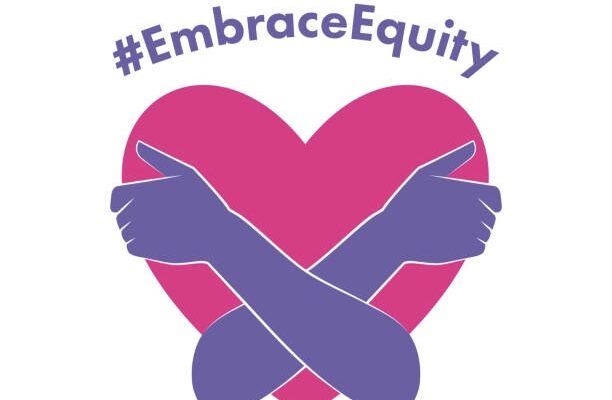On March 8 of every year, the world celebrates women everywhere regardless of racial, ethnic, economic or educational differences.
The attributes and strides of women are trumpeted, and their continued struggles highlighted for intervention.
I‘ve always found it gratifying that the world stops to reflect on the wonders of its greatest asset— women!
This time-honoured tradition of designating a day to celebrate women, which became officially universal in 1977, is a heritage born from the struggles of women across continents to actualize fundamental rights to vote, work, organize and pursue their cherished aspirations.
These struggles were shaped by revolution and protest, exacting costly sacrifices.
We have come a long way indeed, but must always remember those who paved the way, and draw from their inspiration so as to appreciate the weight of the sacred baton handed down to us.
We must continue to carry this baton until women everywhere shatter all barriers to their full liberation and rightful participation in society.
It is with a full consciousness of the meaning behind the International Women’s Day that I approach March 8 every year.
As a woman who has faced and overcome great challenges in my journey to social and professional actualisation— as is the story of too many women— this day speaks to our defiance and triumphs despite stiff resistance and gruelling odds.
It always breaks my heart whenever discriminatory experiences of women in the world of work are shared. And I can relate, having experienced my own fair share.
When women’s professional competence is dismissed because they’re women, it strikes at the soul.
When hard working women rise to the top but have their success questioned because they’re women, it is a travesty. When innovative women present their brilliant proposals for consideration but receive condescending and patronizing gestures instead, it is shameful.
As long as the ideas, hard work and success of women anywhere continue to be questioned, even dismissed, because they are women, the struggle for equity is still far off.
Women must be accorded their due respect, professionally and otherwise. Their ideas, skills and results must be evaluated in their own rights. This is the only way to go!
Reflecting on the theme for this year’s celebration— DigitALL: Innovation and technology for gender equality— I grapple with feelings of ambivalence.
On the one hand, I am excited that in the world of innovation and technology, women all over the world are helping to reimagine the world and create a future defined by new and more advanced thinking, systems and products.
To move from the battlegrounds of sweatshops and breadlines to the disruptive space of technology and innovation is quite the progress. Women have indeed come a long way.
However, I am troubled by how unevenly distributed this progress has been. In many developing countries, the scourge of millions of out-of-school young girls is still rife. Access to basic education has been very limited.
For many of these girls, the battle is one of literacy and basic education— that centuries-old problem now distant history in many an advanced economy— not digital inclusion. We have a long way still to go!
Even in places where women have some access to innovation and technology, the numbers are concerning.
Women make up only under a third of the workforce in STEM and only 22% of AI workers globally; the gender digital divide in access to the internet in the world’s least developed countries is at a staggering 32.9%; women’s exclusion from the digital world has shaved USD 1 trillion from the GDP of low- and middle-income countries in the last decade—a loss estimated to increase to USD 1.5 trillion by 2025 without necessary action.
Bridging the digital divide and expanding access to technology and innovation for women requires strategic thinking and sustained targeted action.
For Africa, opportunities around free trade, cross-border economic engagement, and multi-country collaboration and resource-pooling represent just the right vehicle to drive this inclusion.
The socio-economic exclusion of women in Africa, can best be addressed through strategic collaboration.
And the reason is not far-fetched. With limited resources and an exploding population, many African countries are struggling to meet the demands of inclusion and development.
The restriction-free international trade vehicle offers a unique opportunity for more women to access opportunities across borders, widening access and multiplying alternatives.
The cross-border trade intervention, in its different forms— bilateral, multilateral, continental— has continued to expand opportunities for women in health, education, agriculture, services and industry.
It must now be harnessed to accelerate inclusion of women in technology and innovation.
With the African Continental Trade Area agreement (AfCFTA), a powerful vehicle for accessing the single largest African market ever has been built.
Innovators and entrepreneurs from one end of Africa can leverage on opportunities from another end of Africa to create platforms for innovation and technology capacity development for women and girls.
We are already seeing these play out through the rapid travel of digital and educational platforms between African countries, a development laying the groundwork for empowerment of women in innovation and technology. These must be sustained and expanded.
Given the massive costs to development, income and opportunity, it is time to push hard for the inclusion of more women in innovation and technology.
This struggle can afford no bystanders. Everyone is a stakeholder. Government, private sector, third sector, NGOs and individuals must play their part.
We must embrace equity in innovation and technology, and as we do, remember that the battle for women’s inclusion in many other areas is still not won.
WARNING! All rights reserved. This material, and other digital content on this website, may not be reproduced, published, broadcast, rewritten or redistributed in whole or in part without prior express permission from ZAMBIA MONITOR.












Comments